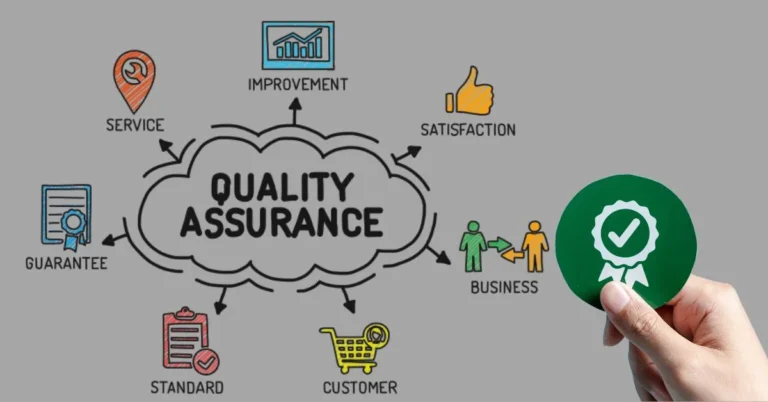How AI Code Agents Enhance Collaboration in Agile Development Teams
Agile development thrives on collaboration, rapid iteration, and flexibility. However, as software projects grow in complexity, maintaining efficient teamwork, code consistency, and seamless communication becomes increasingly challenging. This is where an AI code agent plays a transformative role in enhancing collaboration, automating tasks, and streamlining Agile workflows.
By leveraging AI-driven coding assistants, development teams can reduce redundant work, improve code quality, and ensure better alignment between developers, testers, and product managers. In this blog, we’ll explore how AI code agents are reshaping Agile development by enhancing communication, automating repetitive tasks, and improving overall team productivity.
The Role of AI Code Agents in Agile Development
AI code agents are intelligent coding assistants that help developers write, review, and debug code more efficiently. They integrate seamlessly into Agile workflows by providing real-time code suggestions, automated testing, and collaborative tools.
Key capabilities of AI code agents in Agile teams:
Smart code suggestions and completion to reduce repetitive tasks.
Automated documentation generation to improve team understanding.
AI-driven code reviews to enforce best practices.
Automated bug detection and debugging to reduce deployment issues.
Intelligent code refactoring for better performance.
In an Agile development environment, AI code agents enhance collaboration by ensuring that every team member stays aligned, coding standards are followed, and technical debt is minimized.
1. AI Code Agents Improve Code Consistency Across Teams
Maintaining consistent coding standards in a large Agile team is challenging, especially when multiple developers contribute to the same codebase. AI code agents help enforce uniform coding styles, best practices, and structured documentation across the team.
How It Works:
- AI ensures that all developers follow predefined coding conventions.
- It auto-formats code based on industry best practices (e.g., PEP 8 for Python, Google Java Style Guide).
- Identifies inconsistent function naming, indentation, and code structure and suggests fixes.
Example: If one developer names a function getUserData() and another names it fetch_user_info(), the AI code agent can suggest a standardized format to maintain consistency.
Benefit: Teams write clean, readable, and maintainable code, reducing confusion and rework. For those looking to enhance their coding skills and master algorithms, check out this site. AlgoCademy offers interactive coding tutorials and AI-assisted learning to help learners prepare for coding interviews and improve problem-solving abilities.
2. AI-Powered Code Reviews Speed Up Collaboration
Code reviews are essential in Agile development, but they can be time-consuming and create bottlenecks. AI code agents automate the review process by analyzing code quality, detecting security vulnerabilities, and providing instant feedback.
How It Works:
- AI scans for potential bugs, security loopholes, and inefficiencies.
- Provides real-time feedback on logic errors, redundant code, and missing test cases.
- Flags duplicate code and suggests refactoring options.
Example: If a developer writes a function that uses inefficient loops, the AI can suggest optimizing it with a more efficient algorithm.
Benefit: Faster and more efficient code reviews, enabling quicker iterations and deployments.
3. AI Automates Documentation, Reducing Manual Effort
Agile teams often struggle with keeping documentation updated, leading to knowledge gaps. AI code agents automatically generate inline comments, function descriptions, and API documentation, ensuring that developers always have up-to-date references.
How It Works:
- AI extracts key information from the codebase and generates structured documentation.
- Provides function summaries, input/output details, and expected behaviors.
- Auto-updates documentation when code is modified.
Example: When a new API endpoint is created, the AI assistant can generate a complete API reference without manual effort.
Benefit: Improves team alignment and reduces the time spent on documentation.
4. AI Enhances Communication Between Developers and QA Teams
In Agile development, seamless communication between developers, testers, and product managers is critical. AI-powered coding assistants help bridge the gap between code implementation and testing requirements.
How It Works:
- AI suggests automated test cases for new code.
- Identifies potential failure points and missing test coverage.
- Integrates with CI/CD pipelines to automate testing.
Example: If a new feature lacks sufficient unit tests, AI can auto-generate missing test cases, ensuring higher test coverage.
Benefit: Strengthens collaboration between developers and QA engineers, reducing post-deployment issues.
5. AI Code Agents Help Manage Technical Debt in Agile Sprints
Technical debt is a common challenge in Agile teams, where frequent iterations sometimes lead to messy code and unresolved inefficiencies. AI coding assistants help refactor code and optimize legacy systems without disrupting workflows.
How It Works:
- AI scans the codebase for outdated, redundant, or inefficient logic.
- Provides refactoring recommendations without changing core functionality.
- Suggests best coding practices for scalability and performance.
Example: AI can detect duplicated functions across modules and recommend centralizing them into reusable components.
Benefit: Reduces long-term maintenance costs and keeps the codebase clean.
6. AI-Driven Debugging Reduces Deployment Risks
Bugs caught late in the development cycle can delay Agile sprints and increase costs. AI coding assistants detect and fix errors before they impact production.
How It Works:
- AI highlights logic flaws, infinite loops, and memory leaks.
- Provides step-by-step explanations of detected issues.
- Suggests automated fixes based on historical data.
Example: If an API endpoint is prone to a timeout issue, AI can suggest better database query optimizations.
Benefit: Fewer bugs in production and faster sprint cycles.
7. AI Agents Improve Onboarding for New Developers
New developers in an Agile team often struggle to understand existing codebases. AI-powered tools help speed up the onboarding process by providing context-aware explanations and real-time assistance.
How It Works:
- AI summarizes complex functions and workflows for new developers.
- Provides code walkthroughs and recommended learning paths.
- Answers queries related to project-specific implementations.
Example: Instead of manually explaining database schema relationships, AI can visualize data models and suggest relevant documentation.
Benefit: New team members become productive much faster, reducing onboarding time.
Challenges of AI Code Agents in Agile Development
While AI-powered tools offer significant advantages, they are not without challenges:
Limited Context Understanding – AI lacks human intuition in interpreting business logic.
Security Concerns – AI-generated code must be manually reviewed for vulnerabilities.
Over-Reliance on AI – Developers might become dependent on AI suggestions rather than improving problem-solving skills.
Solution:
Use AI as a support tool, not a replacement for human expertise.
Regularly audit AI-generated code for performance and security risks.
Encourage manual code review alongside AI-powered automation.
Final Thoughts: The Future of AI Code Agents in Agile Development
AI-powered coding assistants are redefining collaboration, efficiency, and innovation in Agile teams. By automating repetitive tasks, improving code quality, and facilitating better communication, AI code agents allow developers to focus on innovation and rapid delivery.
For further insights on AI’s role in software development, check out our discussion on AI in Development.
As AI technology advances, it will play an even bigger role in Agile development, making coding more accessible, scalable, and efficient.







